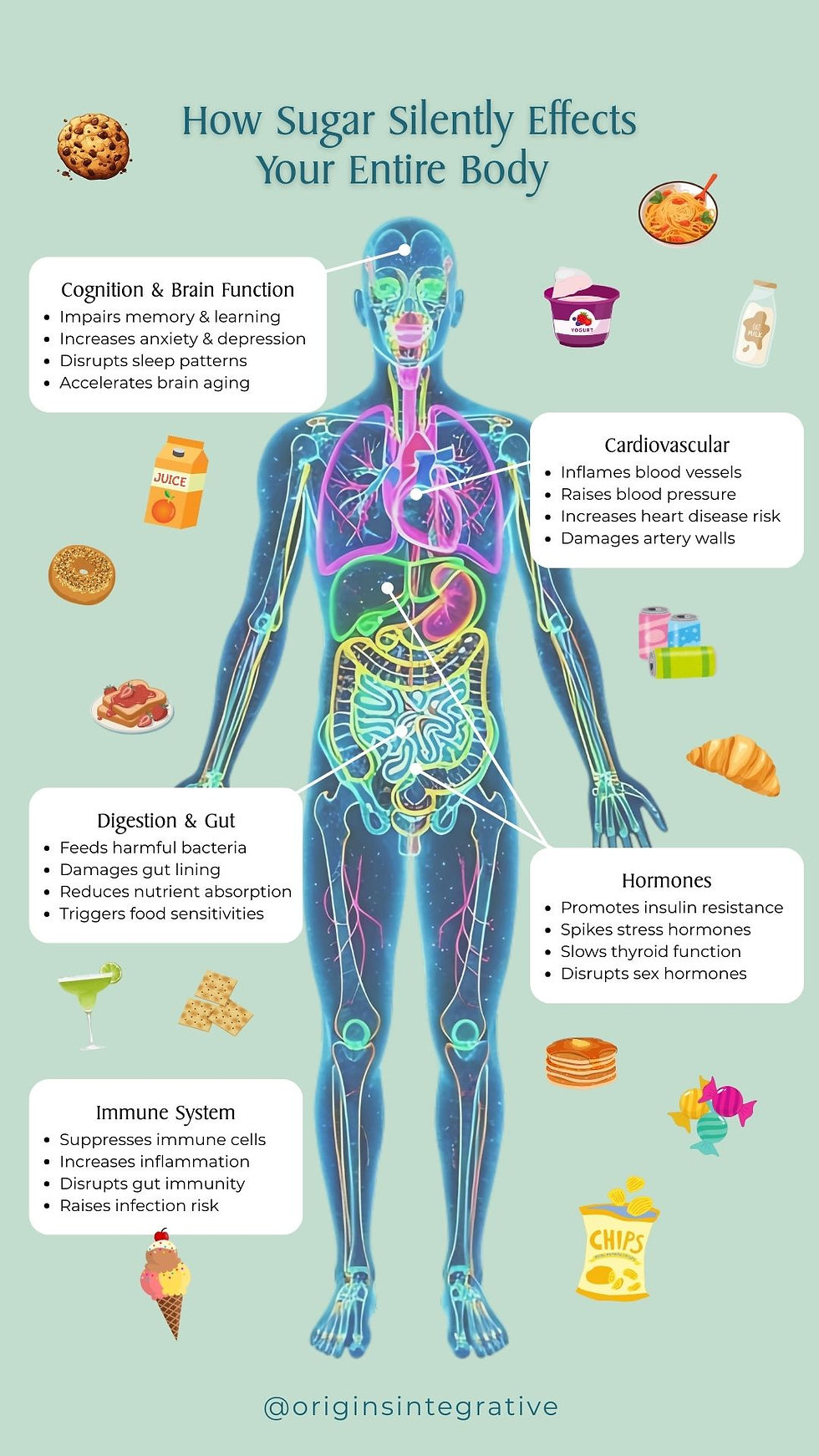Is Intermittent Fasting Right for You?
- Jaime Heer, FNTP

- Apr 4, 2023
- 3 min read
There's lot of buzz out there regarding the potential benefits of intermittent fasting, however, is it really the right approach for everyone? Let's explore this topic a bit more to see if it's a good fit for you. What is intermittent fasting? There are a variety of methods of Intermittent Fasting but the most common is called Time-Restricted Fasting. This involves fasting for a set amount of time each day, typically 12-16 hours, and then eating during a specific time window, usually between 8-12 hours.
What are the potential benefits?
Intermittent fasting has been associated with several potential health benefits such as increased insulin sensitivity, weight loss, reduced sugar cravings, improved brain function and decreased inflammation.
That sounds amazing! But does it work for Everyone? Although intermittent fasting has been found to offer numerous benefits for some, the reality is that it is not always suitable for everyone. Its effectiveness varies based on several factors, including your current health status, stress levels, lifestyle, and eating habits.
Who might not experience benefits from intermittent fasting?
Based on our clinical experience, women, as well as those with high-stress lifestyles, adrenal and thyroid conditions tend to be more prone to negative effects from intermittent fasting. This can be attributed to the body perceiving meal skipping as a stressor, which can lead to elevated levels of cortisol, decreased thyroid function, and storage of calories as fat in anticipation of possible food scarcity. The added stress can exacerbate the already existing challenge for your body to regulate metabolism, hormones, and hunger, ultimately causing greater imbalances.
Everyone is different and so it's important to always listen to your body. If something doesn't feel right, stop doing it.
If you are looking to enhance your energy levels, mental clarity, and attain a healthy weight, here are some key elements that we've found to be most effective:
🔑 Drink plenty of water: 1/2 body weight in oz per day. Add a squeeze of lemon & sprinkle of sea salt for electrolytes (aka minerals).
🔑 Circadian-based eating: eat about 1-2 hours after waking, and stop eating at least 3 hours before bedtime. Ideally you'll give your body a break from eating & digesting for 12 hours. (This includes time spent sleeping.)
🔑 Move your body everyday! Walking, pilates, yoga, resistance training: 2/3 weight training & 1/3 cardio, are all great forms of movement that promote detoxification and metabolism but shouldn't over-stimulate the production of stress hormones.
🔑 Focus on "slow carbohydrates" to keep blood sugar balanced: non-starchy vegetables, leafy greens, sprouted beans & legumes and gluten free grains (quinoa, jasmine rice, buckwheat).
🔑 Incorporate healthy fats into every meal: avocados, olives, coconuts and their unrefined, cold pressed oils, tahini, grass-fed butter or ghee, nuts & seeds
🔑 Enjoy quality proteins, 2 - 6oz per day: wild caught fish & seafood, pasture-raised poultry and eggs, grass-fed/finished meats, sprouted beans and legumes, organic tofu & tempeh
🔑 Treat yourself to high fiber fruits but limit to 1/2 cup,1-2x day: dark berries, apples, kiwi & citrus
🔑 Try to avoid over-snacking between meals. It's important to give your body time to digest and utilize the energy from the food that you already ate. However, if you are feeling like you really need something try a high protein snack such as a handful of nuts, hard-boiled eg or celery with almond butter.
🔑 Incorporate stress relief practices into each day: meditation, deep breathing, nature walk, listening to calming music in order to allow your nervous system to experience a sense of calm.
Have you tried intermittent fasting or have hit a plateau? We'd love to help your achieve your health goals!




Comments